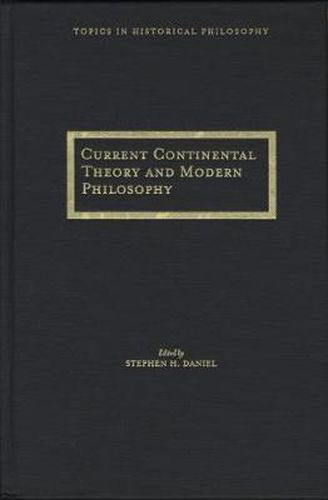Readings Newsletter
Become a Readings Member to make your shopping experience even easier.
Sign in or sign up for free!
You’re not far away from qualifying for FREE standard shipping within Australia
You’ve qualified for FREE standard shipping within Australia
The cart is loading…






his volume thus retrieves modern thinkers from the modernistic ways in which they have been portrayed since the nineteenth century; at the same time, it enhances our view of the roots and concerns of current Continental thought. What claims does the early modern period have on contemporary philosophy? How have recent theorists engaged this material, and why? These essays explore how major Continental theorists such as Derrida, Deleuze, Le Doeuff, Irigary, Kristeva, and Althusser explicate the ideas of classical modern thinkers; others draw on recent Continental insights to examine the doctrines of modern philosophers beginning with Machiavelli and ending with Kant. Together they show how current Continental theory reinvigorates the study of the history of modern philosophers by transforming not only how we interpret their answers to certain questions, but also how we understand the very nature of these questions.
$9.00 standard shipping within Australia
FREE standard shipping within Australia for orders over $100.00
Express & International shipping calculated at checkout
his volume thus retrieves modern thinkers from the modernistic ways in which they have been portrayed since the nineteenth century; at the same time, it enhances our view of the roots and concerns of current Continental thought. What claims does the early modern period have on contemporary philosophy? How have recent theorists engaged this material, and why? These essays explore how major Continental theorists such as Derrida, Deleuze, Le Doeuff, Irigary, Kristeva, and Althusser explicate the ideas of classical modern thinkers; others draw on recent Continental insights to examine the doctrines of modern philosophers beginning with Machiavelli and ending with Kant. Together they show how current Continental theory reinvigorates the study of the history of modern philosophers by transforming not only how we interpret their answers to certain questions, but also how we understand the very nature of these questions.